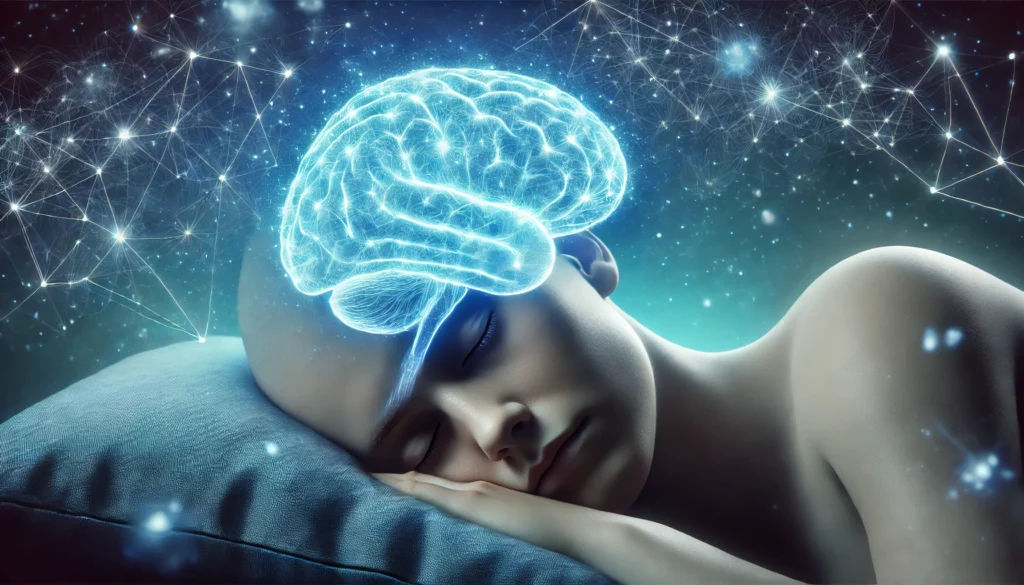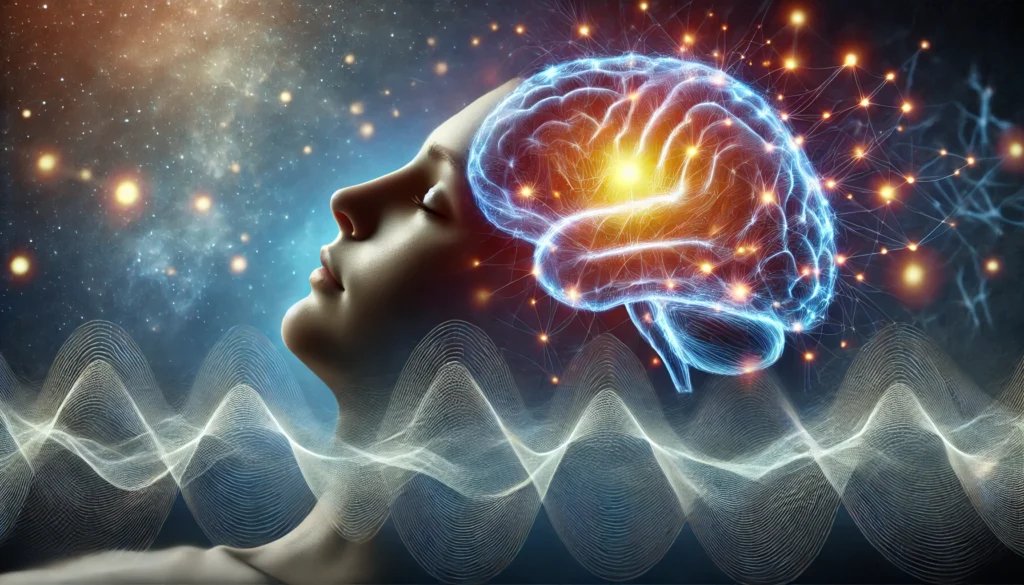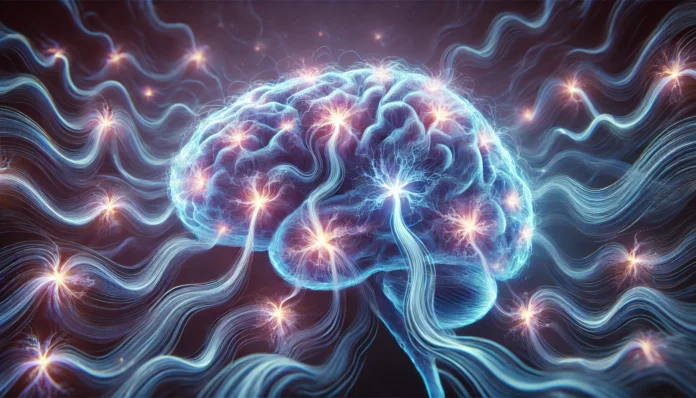Introduction
Sleep is a fundamental biological process that is essential for overall health, particularly brain function and cognitive performance. Scientific research has increasingly revealed the profound relationship between sleep and neuroscience, uncovering the intricate mechanisms that govern memory consolidation, emotional regulation, and neuroplasticity. The question of “how does sleep relate to neuroscience” has been a central theme in contemporary research, providing insight into how sleep supports brain health and protects against neurodegenerative disorders. The neuroscience of sleep encompasses the study of brain activity during various sleep stages, the impact of sleep deprivation on cognitive abilities, and the ways in which sleep fosters optimal mental performance. Understanding these mechanisms is crucial not only for academic discourse but also for public health strategies aimed at improving sleep hygiene and mitigating cognitive decline.
You may also like : Best Things for Brain Health: Expert-Backed Strategies to Keep Your Mind Sharp
The Stages of Sleep and Their Role in Brain Function
Sleep is a dynamic process that consists of multiple stages, each playing a vital role in brain health. The two primary categories of sleep are non-rapid eye movement (NREM) sleep and rapid eye movement (REM) sleep. Within NREM sleep, there are three distinct stages, with each progressively leading to deeper sleep. The first stage is a transitional phase between wakefulness and sleep, characterized by slow eye movements and reduced brain activity. The second stage involves sleep spindles and K-complexes, which are critical for memory consolidation and sensory processing. The third stage, also known as slow-wave sleep (SWS), is crucial for physical and cognitive restoration, as it facilitates the clearance of metabolic waste products from the brain and strengthens neural connections.
REM sleep, on the other hand, is associated with vivid dreaming, emotional processing, and learning. During this stage, the brain exhibits high levels of activity that resemble wakefulness, yet the body remains in a state of temporary paralysis. The neuroscience of sleep suggests that REM sleep plays a key role in problem-solving, emotional resilience, and synaptic pruning. Disruptions in REM sleep have been linked to mood disorders, cognitive impairments, and increased susceptibility to stress. Consequently, maintaining a balanced sleep cycle is essential for optimal brain health and cognitive function.
The Role of Sleep in Memory Consolidation
Memory consolidation is one of the most well-established benefits of sleep, with extensive research demonstrating that sleep enhances both declarative and procedural memory. Declarative memory refers to the recall of facts and events, while procedural memory pertains to skills and habits. The interplay between different sleep stages and memory processing is a central topic in the field of neuroscience. During NREM sleep, the hippocampus and neocortex engage in a bidirectional exchange of information, transferring short-term memories into long-term storage. This process is facilitated by sleep spindles, which play a crucial role in strengthening synaptic connections and reinforcing learned information.
REM sleep further refines memory consolidation by integrating newly acquired knowledge with existing cognitive frameworks. Studies have shown that individuals who experience adequate REM sleep perform better on complex problem-solving tasks and exhibit enhanced creativity. Sleep deprivation, on the other hand, disrupts memory encoding and retrieval, leading to diminished cognitive performance and impaired decision-making. Understanding “how does sleep relate to neuroscience” in the context of memory consolidation highlights the importance of sleep for academic performance, professional productivity, and lifelong learning.

Sleep and Emotional Regulation
Emotional regulation is another critical function of sleep, with the neuroscience of sleep revealing its profound impact on mental well-being. Sleep plays a pivotal role in modulating the brain’s response to stress, fear, and anxiety. The amygdala, a key brain region involved in emotional processing, exhibits heightened activity following sleep deprivation, leading to exaggerated emotional reactions. Conversely, adequate sleep enhances prefrontal cortex activity, which is essential for rational decision-making and emotional stability.
Sleep also influences the production of neurotransmitters such as serotonin and dopamine, which are vital for mood regulation. Chronic sleep deprivation has been linked to increased risks of depression, anxiety disorders, and emotional instability. Furthermore, sleep disturbances are common in individuals with psychiatric conditions, underscoring the bidirectional relationship between sleep and mental health. By fostering emotional resilience and psychological well-being, sleep serves as a fundamental pillar of overall brain health.
Neuroplasticity and the Rejuvenating Effects of Sleep
Neuroplasticity, the brain’s ability to reorganize and adapt in response to experiences, is heavily influenced by sleep. The neuroscience of sleep demonstrates that both synaptic strengthening and synaptic pruning occur during sleep, facilitating cognitive flexibility and learning. Synaptic homeostasis theory suggests that sleep enables the brain to optimize neural connections by selectively reinforcing important synapses while eliminating redundant ones. This process is crucial for efficient brain function, as it prevents neural overload and enhances cognitive adaptability.
Sleep also supports the glymphatic system, which is responsible for clearing neurotoxic waste products, including beta-amyloid and tau proteins associated with Alzheimer’s disease. During deep sleep, cerebrospinal fluid circulation increases, facilitating the removal of these harmful substances and reducing the risk of neurodegenerative disorders. The implications of sleep on brain detoxification highlight its role in long-term cognitive preservation and aging-related resilience.

Frequently Asked Questions (FAQ) on the Neuroscience of Sleep
1. How does sleep relate to neuroscience in terms of brain detoxification?
One of the most crucial ways sleep impacts brain function is through its role in detoxification. During deep sleep, the glymphatic system becomes highly active, helping to clear metabolic waste and harmful proteins such as beta-amyloid, which are linked to neurodegenerative diseases like Alzheimer’s. This process is facilitated by cerebrospinal fluid circulation, which effectively flushes toxins from the brain. The neuroscience of sleep has revealed that individuals who consistently experience poor sleep are at a higher risk for cognitive decline due to the accumulation of these neurotoxins. Therefore, high-quality sleep is essential not only for cognitive function but also for long-term brain health and disease prevention.
2. What impact does sleep have on decision-making and problem-solving?
The neuroscience of sleep suggests that adequate sleep significantly enhances problem-solving abilities and decision-making skills. REM sleep, in particular, has been shown to strengthen creative thinking by allowing the brain to form new associations between concepts. Sleep deprivation, on the other hand, impairs the prefrontal cortex, reducing an individual’s ability to make rational decisions and assess risks effectively. Studies have found that people who are sleep-deprived are more likely to engage in impulsive behaviors and struggle with complex cognitive tasks. This highlights the profound impact of sleep on executive functions and everyday cognitive performance.
3. How does sleep deprivation affect emotional regulation?
Sleep plays a fundamental role in regulating emotions by stabilizing neural activity in the amygdala and prefrontal cortex. When sleep is disrupted, the amygdala becomes hyperactive, leading to heightened emotional responses, while the prefrontal cortex—responsible for rational thinking—loses its ability to regulate these emotions effectively. The neuroscience of sleep has demonstrated that chronic sleep deprivation is closely linked to mood disorders such as depression and anxiety, as well as increased sensitivity to stress. Prioritizing sleep can help improve emotional resilience, allowing individuals to navigate challenges with greater ease and stability.
4. Can improving sleep quality enhance memory retention and learning?
Yes, sleep is critical for memory consolidation and learning. The neuroscience of sleep shows that different stages of sleep contribute uniquely to memory retention—NREM sleep strengthens factual and declarative memory, while REM sleep is essential for integrating new knowledge into existing cognitive frameworks. When individuals get sufficient sleep, their ability to recall and apply learned information improves significantly. Sleep deprivation, conversely, disrupts hippocampal function, impairing the encoding of new memories and reducing long-term retention. This underscores the importance of sleep for students, professionals, and anyone looking to enhance their cognitive abilities.
5. How does sleep influence brain plasticity and adaptability?
Neuroplasticity, or the brain’s ability to rewire itself in response to experiences, is directly influenced by sleep. During sleep, synaptic connections are selectively strengthened or pruned, allowing the brain to optimize its neural network for efficiency. The neuroscience of sleep suggests that this process enhances adaptability, making it easier to acquire new skills and recover from neurological injuries. Research indicates that individuals who get restorative sleep are more likely to demonstrate cognitive flexibility and resilience in learning new tasks. Thus, sleep acts as a natural enhancer of mental agility and lifelong learning capacity.
6. Does sleep impact stress levels and overall well-being?
Sleep serves as a crucial buffer against stress by regulating cortisol levels and maintaining hormonal balance. Chronic sleep deprivation elevates cortisol production, leading to prolonged stress responses that negatively affect both physical and mental health. The neuroscience of sleep has demonstrated that individuals who achieve sufficient REM and deep sleep experience lower stress levels and improved coping mechanisms. Additionally, quality sleep enhances emotional stability, reducing the likelihood of stress-related disorders such as burnout and anxiety. Making sleep a priority can therefore serve as an effective, natural strategy for stress management and overall well-being.
7. How does sleep loss impact brain aging and cognitive decline?
Poor sleep accelerates brain aging by impairing the brain’s ability to repair and regenerate neural connections. The neuroscience of sleep has shown that chronic sleep deprivation is associated with an increased risk of neurodegenerative conditions such as Alzheimer’s and Parkinson’s disease. One reason for this is the disruption of slow-wave sleep, which is essential for clearing toxic proteins from the brain. Moreover, individuals who consistently get inadequate sleep may experience shrinkage in brain volume, particularly in areas responsible for memory and cognition. Ensuring sufficient, high-quality sleep is therefore one of the most effective ways to slow cognitive decline and support long-term brain health.
8. Can sleep improve creativity and innovative thinking?
Yes, sleep has a profound effect on creativity and the ability to generate novel ideas. The neuroscience of sleep indicates that REM sleep, in particular, is crucial for divergent thinking, which allows individuals to make unexpected connections between seemingly unrelated concepts. During this stage, the brain integrates past experiences with new information, leading to the formation of innovative solutions and insights. Studies have shown that well-rested individuals tend to perform better on creative tasks compared to those who are sleep-deprived. This suggests that sleep is not just essential for cognitive maintenance but also for fostering original thinking and innovation.
9. How does sleep affect the immune system and brain health?
Sleep plays a critical role in maintaining a robust immune system, which in turn supports brain health. The neuroscience of sleep has demonstrated that during deep sleep, the body produces cytokines—proteins that help fight infections and inflammation. Sleep deprivation weakens immune function, making individuals more susceptible to illnesses and increasing the likelihood of neuroinflammation, which has been linked to cognitive decline. Additionally, sleep helps regulate metabolic functions, reducing the risk of conditions such as obesity and diabetes, which can negatively impact brain health. By prioritizing sleep, individuals can enhance both their immune response and cognitive longevity.
10. What are some effective strategies for improving sleep quality?
Optimizing sleep quality involves adopting consistent habits that promote a healthy sleep cycle. The neuroscience of sleep suggests that maintaining a regular sleep schedule, avoiding blue light exposure before bedtime, and creating a cool, dark sleep environment can significantly enhance sleep efficiency. Engaging in relaxation techniques such as meditation or deep breathing before bed can also improve sleep onset and duration. Additionally, limiting caffeine and alcohol intake, especially in the evening, helps prevent sleep disturbances. Implementing these strategies can lead to more restorative sleep, ultimately benefiting cognitive function, emotional well-being, and overall health.

Conclusion
The neuroscience of sleep underscores its indispensable role in maintaining brain health, cognitive function, and emotional well-being. Understanding “how does sleep relate to neuroscience” provides valuable insights into the mechanisms by which sleep enhances memory consolidation, emotional regulation, and neuroplasticity. Furthermore, sleep serves as a natural defense against neurodegenerative diseases by promoting brain detoxification and synaptic optimization. As scientific research continues to unravel the complexities of sleep, prioritizing healthy sleep habits becomes increasingly imperative for individuals seeking to optimize cognitive performance and overall well-being. Through education and awareness, the promotion of sleep hygiene can serve as a foundational strategy for enhancing brain health and fostering long-term cognitive vitality.
sleep and brain function, cognitive benefits of sleep, REM sleep and memory, deep sleep for mental health, sleep and neuroplasticity, sleep deprivation effects, sleep and emotional well-being, brain detox during sleep, circadian rhythms and cognition, sleep and stress management, neurological impact of sleep loss, optimizing sleep for brain health, sleep quality and aging, brain waves during sleep, sleep’s role in learning, sleep and neurotransmitters, sleep habits for cognitive performance, sleep hygiene for mental clarity, sleep and neurodegenerative diseases, improving sleep for better focus
Further Reading:
Cognitive Neuroscience of Sleep
The cognitive neuroscience of sleep: neuronal systems, consciousness and learning
Disclaimer
The information contained in this article is provided for general informational purposes only and is not intended to serve as medical, legal, or professional advice. While Health11News strives to present accurate, up-to-date, and reliable content, no warranty or guarantee, expressed or implied, is made regarding the completeness, accuracy, or adequacy of the information provided. Readers are strongly advised to seek the guidance of a qualified healthcare provider or other relevant professionals before acting on any information contained in this article. Health11News, its authors, editors, and contributors expressly disclaim any liability for any damages, losses, or consequences arising directly or indirectly from the use, interpretation, or reliance on any information presented herein. The views and opinions expressed in this article are those of the author(s) and do not necessarily reflect the official policies or positions of Health11News.


